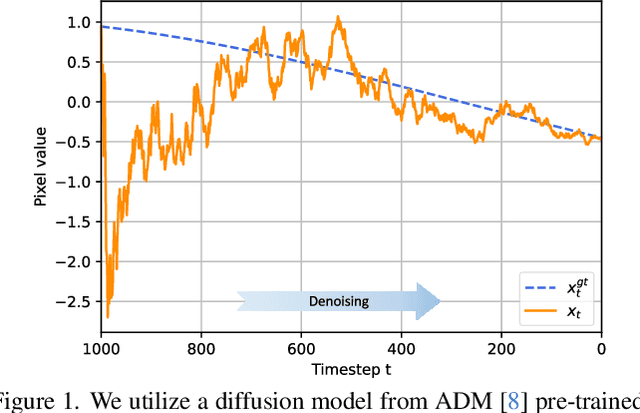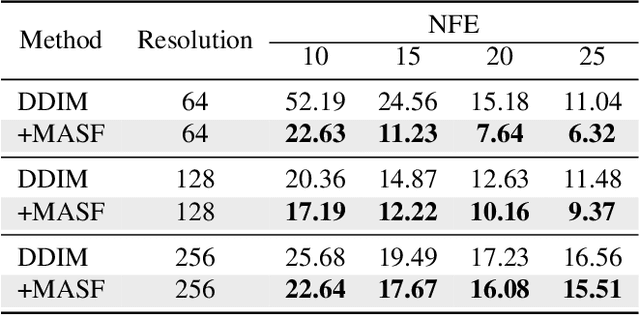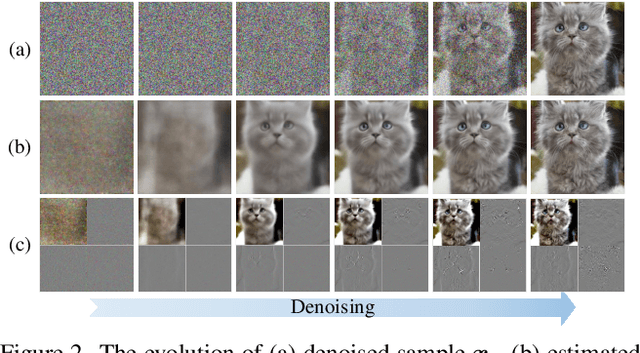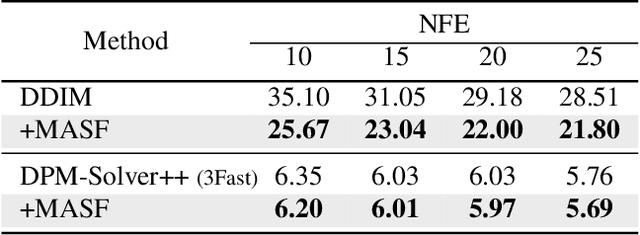Boosting Diffusion Models with Moving Average Sampling in Frequency Domain
Paper and Code
Mar 26, 2024



Diffusion models have recently brought a powerful revolution in image generation. Despite showing impressive generative capabilities, most of these models rely on the current sample to denoise the next one, possibly resulting in denoising instability. In this paper, we reinterpret the iterative denoising process as model optimization and leverage a moving average mechanism to ensemble all the prior samples. Instead of simply applying moving average to the denoised samples at different timesteps, we first map the denoised samples to data space and then perform moving average to avoid distribution shift across timesteps. In view that diffusion models evolve the recovery from low-frequency components to high-frequency details, we further decompose the samples into different frequency components and execute moving average separately on each component. We name the complete approach "Moving Average Sampling in Frequency domain (MASF)". MASF could be seamlessly integrated into mainstream pre-trained diffusion models and sampling schedules. Extensive experiments on both unconditional and conditional diffusion models demonstrate that our MASF leads to superior performances compared to the baselines, with almost negligible additional complexity cost.
 Add to Chrome
Add to Chrome Add to Firefox
Add to Firefox Add to Edge
Add to Edge